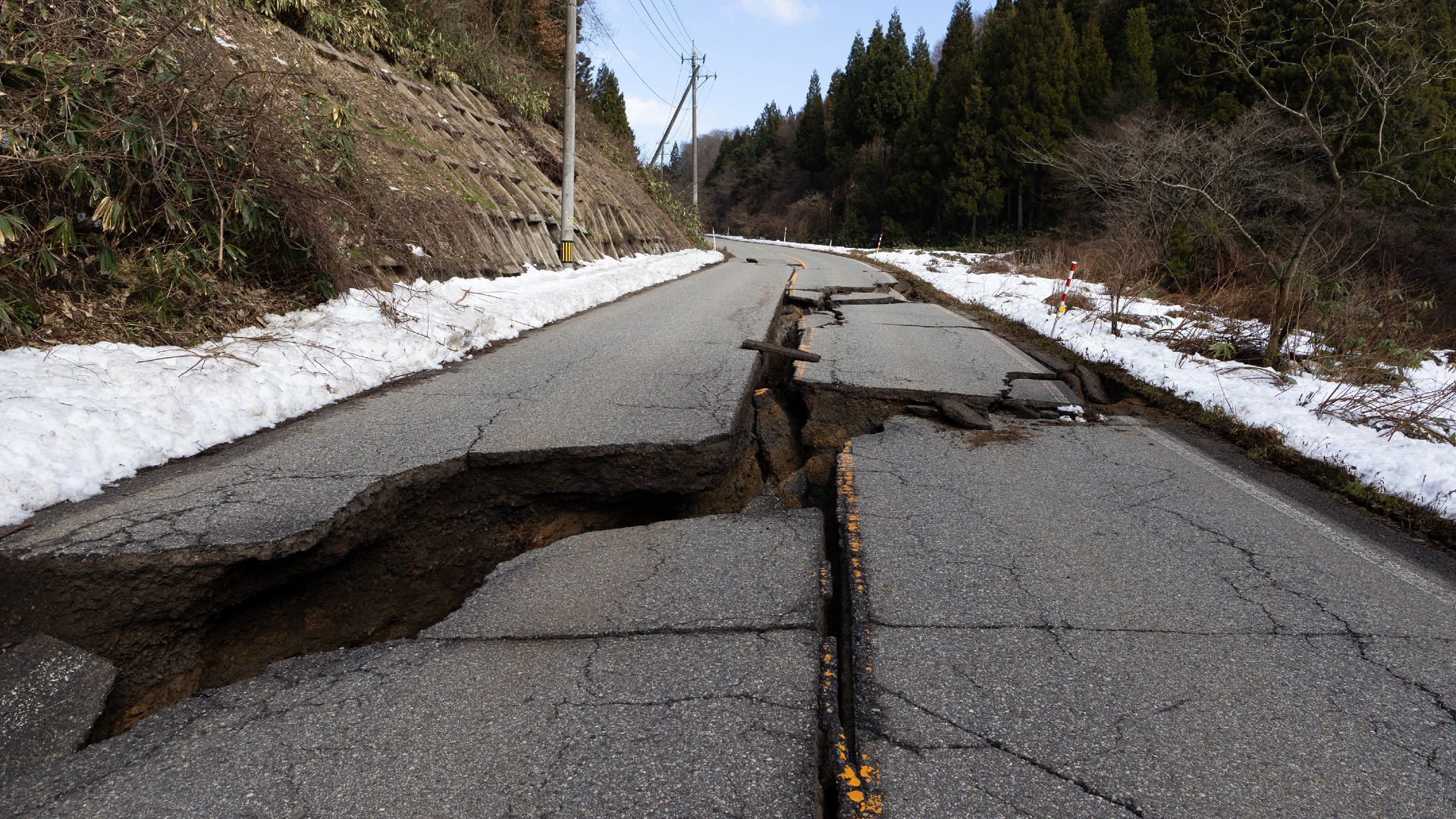How did Japan's earthquake compare to others across the world?
Relatively low death toll a testament to country's preparedness, say experts

A free daily email with the biggest news stories of the day – and the best features from TheWeek.com
You are now subscribed
Your newsletter sign-up was successful
The death toll from the latest major earthquake to hit Japan is expected to rise even though fears of a 2004-style mega tsunami or 2011 Fukushima meltdown are receding.
The Japan Meteorological Agency (JMA) said the Noto region, on the western side of Japan's main island of Honshu, was hit by a rapid series of quakes – about 20 in total – just after 4pm local time on Monday, with the largest registering 7.6 in magnitude.
So far, 48 people have been confirmed dead, with dozens more injured, as Japan's Prime Minister Fumio Kishida said rescuers face a "race against time" to save more survivors trapped beneath the rubble.
The Week
Escape your echo chamber. Get the facts behind the news, plus analysis from multiple perspectives.

Sign up for The Week's Free Newsletters
From our morning news briefing to a weekly Good News Newsletter, get the best of The Week delivered directly to your inbox.
From our morning news briefing to a weekly Good News Newsletter, get the best of The Week delivered directly to your inbox.
What the papers said
Japan's location on the massive Pacific Plate, known as the Pacific Ring of Fire, makes it one of the most seismically active places on Earth. But Monday's earthquake was "different" to previous quakes, said The Times. "It did not occur at a plate boundary. Instead, forces that had built up away from a boundary, probably over many centuries, were suddenly released."
It meant the earthquake was shallower but also relatively small compared to the 9.1-magnitude one that caused the devastating Boxing Day tsunami in 2004, which America's National Oceanic and Atmospheric Administration estimated led to around 230,000 deaths, the displacement of 1.7 million people and roughly $13 billion in economic losses. "That makes it the deadliest tsunami on record but other earthquakes have claimed even more lives," said the paper.
A giant quake that struck the Mediterranean in 1202 is estimated to have killed more than a million people, while one that hit China in 1556 killed around 800,000. More than 300,000 people are thought to have died following the Port-au-Prince earthquake in 2010, though this number is disputed, while the death toll from the earthquake that hit Turkey and Syria last year, which was of a similar size to Monday's quake, neared 60,000.
"In Japan, quakes quickly become a part of life. You get used to them, up to a point," said Rupert Wingfield-Hayes, former BBC Tokyo correspondent, on the BBC.
A free daily email with the biggest news stories of the day – and the best features from TheWeek.com
But some live long in the memory and leave "a deep collective trauma", he said. It has been 13 years since the devastating 2011 earthquake that struck Japan's east coast, causing a 40-metre high tsunami that claimed the lives of nearly 20,000 people, displaced 200,000 and sparked the meltdown at the Fukushima nuclear power plant.
What next?
"You only have to look back to the Tohoku earthquake in 2011 to understand why Japan takes no chances when it comes to the risk of tsunamis," said Sky News' science and technology editor Tom Clarke.
Japanese authorities immediately called for the evacuation of coastal areas and the JMA has warned that more major earthquakes could hit the area over the next week, especially in the next two or three days. Tsunami warnings were also issued for Japan's northernmost main island of Hokkaido and for parts of North Korea and Russia.
"Tsunami waves can bounce around, reflected off surrounding coasts and islands, sometimes leading to larger waves than that caused by the initial quake," said Clarke. But the fact that this earthquake released 250 times less energy than the one in 2011 "means disruption beyond the east coast of Japan is unlikely".
Roads have been ruptured, bridges destroyed and hundreds of buildings have collapsed, said Wingfield-Hayes, but despite the extensive damage, Monday's earthquake is "also a remarkable story of Japan's success at mitigating such disasters".
"Each time the country has been hit by a large quake, the damage has been studied and the regulations updated," he said, adding that it is "hard to think of any other country on Earth that could have experienced Monday's quake without being hit a lot worse".
The relatively low death toll is ultimately not a question of luck but rather of preparedness, agreed James Jackson, professor of active tectonics at the University of Cambridge, on BBC Radio 4's "PM" programme.
"Japan is really respected and admired around the world for being so good at preparing for these things, preparing the population and teaching children and the public what to do and how important it is.
"Yes it's a tragedy," he concluded, but when compared to earthquakes of a similar size, which regularly kill tens of thousands of people, it is also a "triumph".